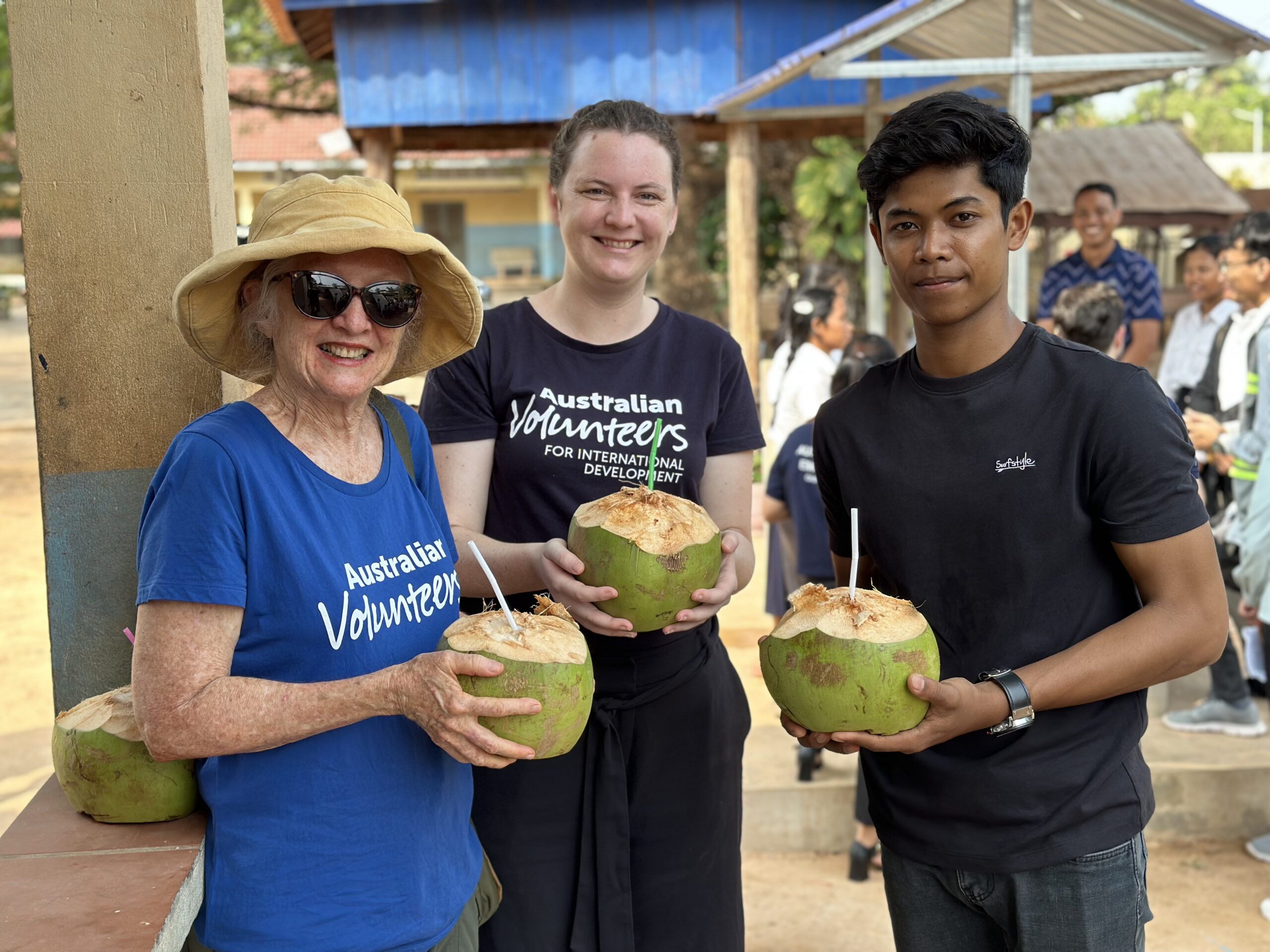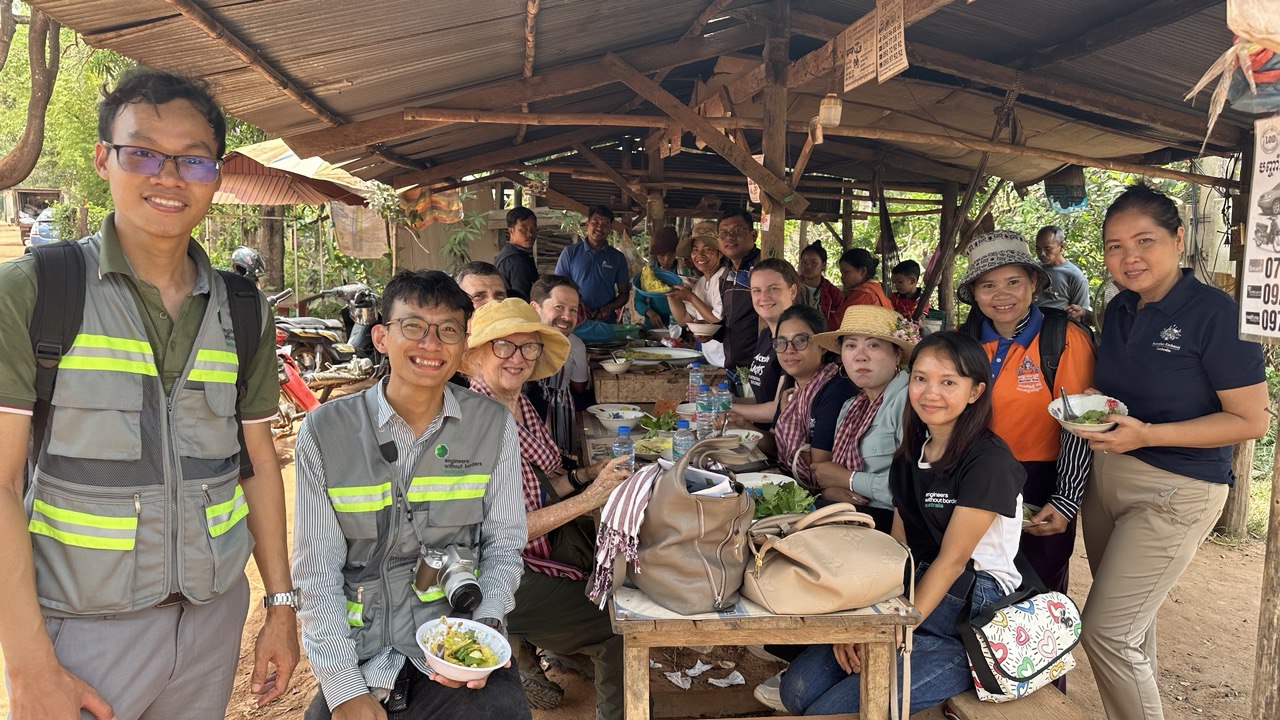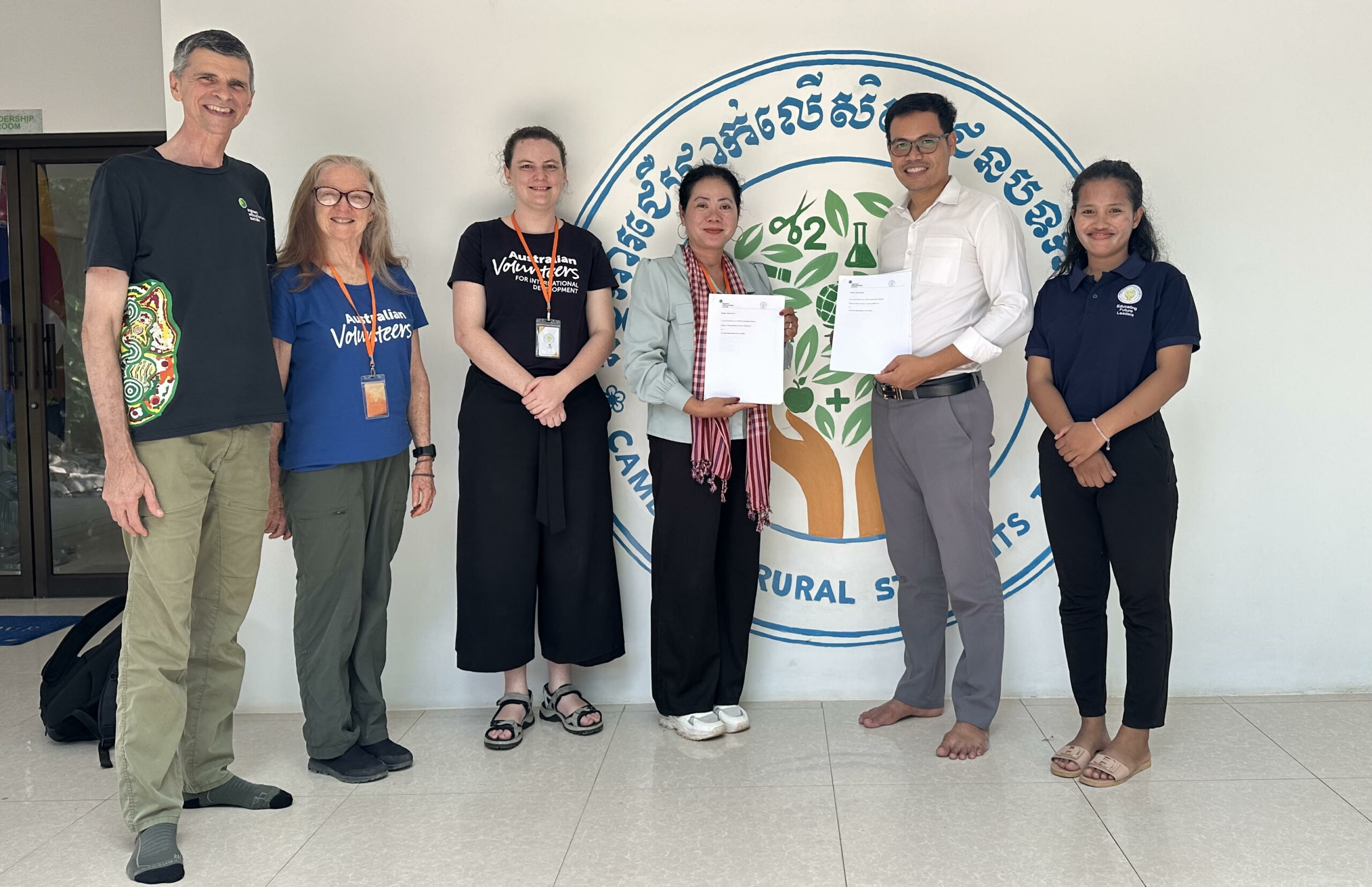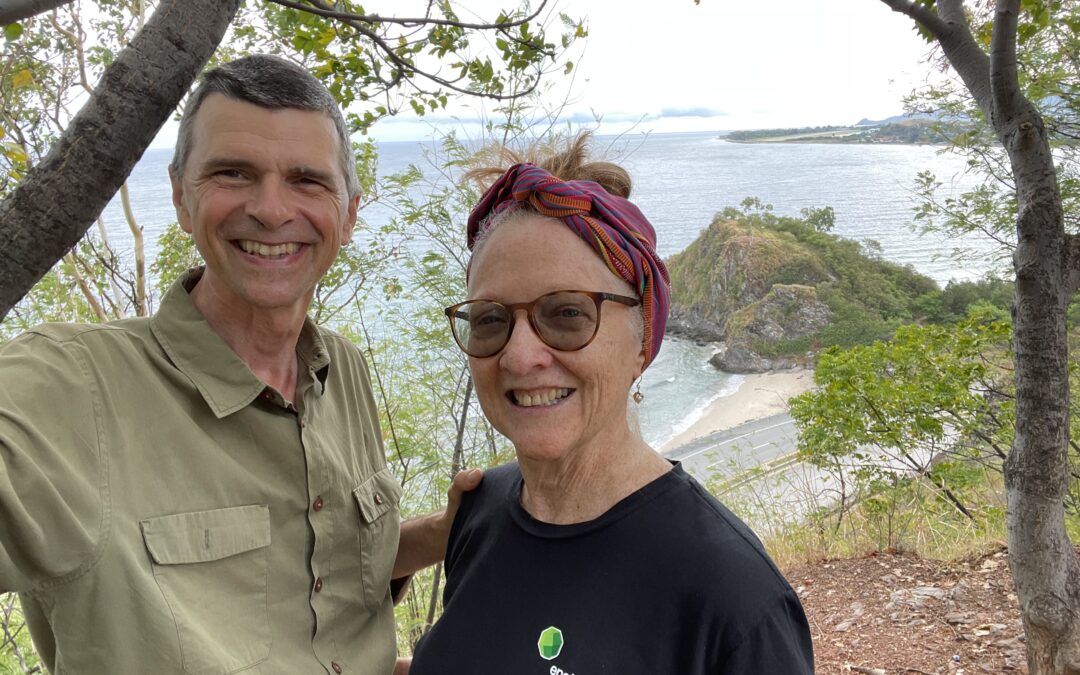Bea Duffield isn’t an engineer, but her experience spans almost everything else. From her academic background in scientific research to her career across both private enterprise and government sector, she has worked in a range of diverse fields including resource development, communications and marketing, policy, and infrastructure development. Her varied career has taken her across the globe, from her home base in Brisbane to Vietnam, Jordan, Sri Lanka, Indonesia, Fiji, Papua New Guinea and Tonga.
More recently, Bea’s passion for international development led her to volunteer overseas in Cambodia and Timor-Leste for several months with EWB Australia through the Australian Volunteers Program as a Country Strategy Mentor.
What has she learnt over the past 10 years? When working with communities overseas, says Bea, “you’re not the star”. The people she worked with – their culture, language and knowledge – came first. “The biggest learning point was to stand back.”

Australian Volunteers Program Field Professionals, Bea and Nicole, visiting a school in Siem Reap where an accessible handwashing station was installed by EWB in partnership with Cambodian Rural Students Trust.
Working across the world
Throughout her career, Bea found working and volunteering across several countries to be a stimulating experience, one which took her out of her comfort zone and prompted her to question her assumptions while bringing her into contact with enriching and inspiring people. Bea’s wide-ranging travels have taught her the importance of flexibility and resourcefulness, and in particular, being able to constantly learn and adapt to different cultures, environments and experiences. “Working across cultures and appreciating the importance of flexibility has maximised my ability to contribute to a better world”.
For Bea, living, working and immersing herself in communities offers an experience both more challenging and more rewarding than being a tourist. Bea finds this immersion and deep engagement critical to her work; for international development to be successful and meaningful, she says, it’s vital to have a real understanding of the situation on the ground and how the local context works.

Bea in a workshop held by EWB Australia with local Cambodian NGO Banteay Srei.
This was particularly important in Bea’s experience working on water and sanitation in Cambodia, to avoid situations where facilities like toilets were installed but not regularly used or maintained. Putting in the effort to learn and understand communities’ needs ensures engineering projects provide genuinely effective, long-lasting solutions that help empower communities in sustainable and culturally responsive ways.
Often, this involved taking a step back and investing time in building relationships with, and learning from, people in local communities. This was a mindset shift that Bea observed in herself and in other colleagues, especially for those transitioning away from a high-powered Western workplace culture built around getting things done, quickly. Working on business development outside of Australia required a new way of thinking and doing things – taking the time to strengthen capacity within communities rather than going in first and doing the work; collaborating together, rather than providing ready-made solutions.
Engineering is ‘all about people’
Bea’s work in Cambodia and Timor-Leste marked new strategic directions for EWB’s country offices, charting a course for expansion and greater in-country responsibility. Her work in both countries involved extensive consultation with the country offices, as well as close collaboration with stakeholders in each country. In each case, the strategic plan focused on providing opportunities for people and strengthening capacity, in a way that reflected the country’s unique context, strengths and needs.

Bea and the EWB Australia in Cambodia team on a trip to Siem Reap with the Australian Deputy Ambassador in 2023.
Bea’s work in Cambodia also impressed on her the value of working with communities to activate their sense of ownership and agency over their resources and equipment. Bea has seen the benefits of empowering people and helping build an entrepreneurial mindset. In one instance, Bea worked with an organisation to install a water tank in a village and gave ongoing responsibility for the facility to one person, who then started a business ensuring the village always had water. “Change starts at the grassroots level and occurs when people are empowered to take responsibility,” says Bea.
Mentors and collaboration
Looking back on her varied career, Bea says she’s fortunate to have had mentors who had confidence in her abilities and encouraged her to take on new opportunities and explore new fields. On her part, Bea has always been open to new challenges – whatever came up, she “‘always said yes”’. She also cites her husband, Gavin Blakey, former Chair of EWB, as a collaborator and source of inspiration in her work. Bea and Gavin have worked together on many projects, driven by their complementary skills and a shared passion for empowering people and prioritising the development and welfare of others.

Bea and her husband Gavin volunteering in Cambodia with the EWB Australia team.
Bea’s focus on strengthening capacity and empowering people from the ground up is what shapes her strategic work, but also her individual approach. Whether mentoring women in small businesses in Papua New Guinea, working with young entrepreneurs in Sri Lanka or collaborating with EWB staff in Cambodia and Timor-Leste, Bea values the relationships she’s fostered through her work. In reflection, she says, “The major contribution I hope I have made is to have encouraged and supported people, giving them confidence and hope about their and their families’ future”.
If you’re interested in volunteering overseas as an Australian Volunteers Program Field Professional with EWB, check out our current opportunities at ewb.org.au/volunteer. The Australian Volunteers Program is an Australian Government-funded initiative.


